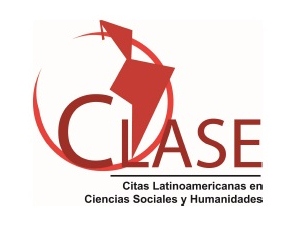Compleción y reconstrucción de argumentos. Minimismo y deductivismo.
Resumen
Recepción: 23 de noviembre de 2016 Aceptación: 14 de febrero de 2017 En este trabajo me interesa resaltar un problema en común —asociado a los entimemas— existente en la filosofía del lenguaje y la teoría de la argumentación, a saber, el de la compleción de contenido proposicional y el de la reconstrucción de argumentos. Me centraré en un par de paralelismos que hay entre estas dos disciplinas relativos a la manera de tratar con estos dos fenómenos. Principalmente, deseo explorar el minimismo semántico que ha tenido lugar en la filosofía del lenguaje y lo que Levi (1995) ha bautizado como el deductivismo en teoría de la argumentación. Lo que haré es presentar cada una de las propuestas en su dominio específico, mostrar cómo se relacionan y exponer algunos de los problemas que enfrentan dichas propuestas. Con esto pretendo mostrar que el tratamiento dado a los entimemas como a los casos de compleción por parte del deductivismo como del minimismo, respectivamente, no es del todo correcto. La relevancia de este trabajo consiste justo en la relación que se establece entre el minimismo semántico que ha tenido lugar en la filosofía del lenguaje y el deductivismo que ha sido expuesto dentro de la teoría de la argumentación.Citas
ANDERSON, A. y N. D. Belnap Jr. (1961). Enthymemes. The Journal of Philosophy, 58(23), 713-723.
ARISTÓTELES (1999). Retórica. (Introd., trad. y notas de Quintín Racionero). Madrid: Gredos.
BACH, K. (1994). Conversational Impliciture. Mind and Language, 9(2), 124-162 (Reino Unido y EE.UU.: Blackwell).
BORG, E. (2004). Minimal Semantics. Oxford: Clarendon Press.
BORG, E. (2009a). “Semantics and the Place of Psychological Evidence”. En S. Sawyer (ed.), New Waves in Philosophy of Language (pp. 24-40). Reino Unido: Palgrave Macmillan.
BORG, E. (2009b). “Meaning and context: a survey of a contemporary debate”. En D. Whiting (ed.), The Later
Wittgenstein on Language (pp. 96-114). Reino Unido: Palgrave Macmillan.
BORG, E. (2009c). “Semantic Minimalism”. En L. Cummings (ed.). The Pragmatics Encyclopedia (pp. 423-425). Londres: Routledge.
BOYER, A. (1995). Cela va sans le dire. Éloge de l’enthymème. Hermès, 1(15), 73-90.
BURKE, M. (1985). Unstated Premises. Informal Logic, 7(2), 107-118.
BURNYEAT, M. F. (2012). Explorations in Ancient and Modern Philosophy, vol. 1. Cambridge / New York: Cambridge University Press.
BRUN, G. y H. Rott (2013). Interpreting enthymematic arguments using belief revision. Synthese, 190(18), 4041-4063.
CAPPELEN, H. y E. Lepore (2005). Insensitive semantics. A defense of semantic minimalism and speech act pluralism. Oxford: Blackwell.
DAVIDSON, D. (1973). Radical Interpretation. Dialectica, 27(3-4), 313-328.
EEMEREN, F. H. van y R. A. Grootendorst. (1982). Unexpressed Premisses: Part I. Journal of the American Forensic Association, 19, 97- 106.
EEMEREN, F. H. van y R. A. Grootendorst. (1983). Unexpressed Premisses: Part II. Journal ofthe American Forensic Association, 19, 215-25.
EEMEREN, F. H. van y R. A. Grootendorst. (2004). Systematic Theory of Argumentation. The pragma-dialectical approach. New York: Cambridge University Press.
GILBERT, M. (1991). The Enthymeme Buster: A Heuristic Procedure for Position Exploration in Dialogic Dispute. Informal Logic, 13(3), 159-166.
GOUGH, J. y CH. Tindale. (1985). ‘Hidden’ or ‘Missing’ Premises. Informal Logic, 7(2), 99-106.
HITCHCOCK, D. (1998). Does the Traditional Treatment of Enthymemes Rest on a Mistake?. Argumentation, 12 (1), 15-37.
JACKSON, S. y S. Jacobs (1980). Structure of conversational argument: pragmatic bases for the enthymeme. The quarterly journal of speech, 66(3), 251-265.
JACQUETTE, D. (1996). Charity and the reiteration problem for enthymemes. Informal Logic, 18(1), 1-15.
LEVI, D. S. (1995). The Case of the Missing Premise. Informal Logic, 17(1), 67-88.
MARRAUD, H. (2013). ¿Es lógic@? Análisis y evaluación de argumentos. Madrid: Cátedra (Colección Teorema).
PAGLIERI, F. y J. Woods. (2011). Enthymemes: From Reconstruction to Understanding. Argumentation, 25(2), 127-139.
PAGLIERI, F. y J. Woods. (2011). Enthymematic parsimony. Synthese, 178(3), 461-501.
SCRIVEN, M. (1976). Reasoning. New York: McGraw-Hill.
RODRÍGUEZ Monsiváis, R. (2017). Compleción y reconstrucción de argumentos. Minimismo y deductivismo.
SOAMES, S. (2002). Beyond Rigidity. Oxford: Oxford University Press.
WALKER, J. (1994). The Body of Persuasion: A Theory of the Enthymeme. College English, 56(1), 46-65.
WALTON, D. (2001). Enthymemes, common knowledge, and plausible inference. Philosophy & Rhetoric, 34(2), 93-112.
WALTON, D. y C. A. Reed. (2005). Argumentation schemes and enthymemes. Synthese, 145(3), 339-370.
Una vez que un texto es aceptado para su publicación en Quadripartita Ratio, sus autores deben firmar dos documentos de carácter legal: una Licencia de uso y una Declaración de autoría.
Con la Licencia de uso, los autores autorizan la publicación de su obra y la difusión de ésta (integración en bases de datos, difusión en nuestras redes sociales, reediciones posibles, etc.). No obstante, se autoriza la descarga, reproducción y distribución de todos nuestros contenidos publicados, siempre que no se modifique el contenido y se indique su origen (nombre de la revista, volumen, número, páginas y dirección electrónica del documento).
Con la Declaración de autoría, los autores manifiestan que la obra es de su autoría, original e inédita.









